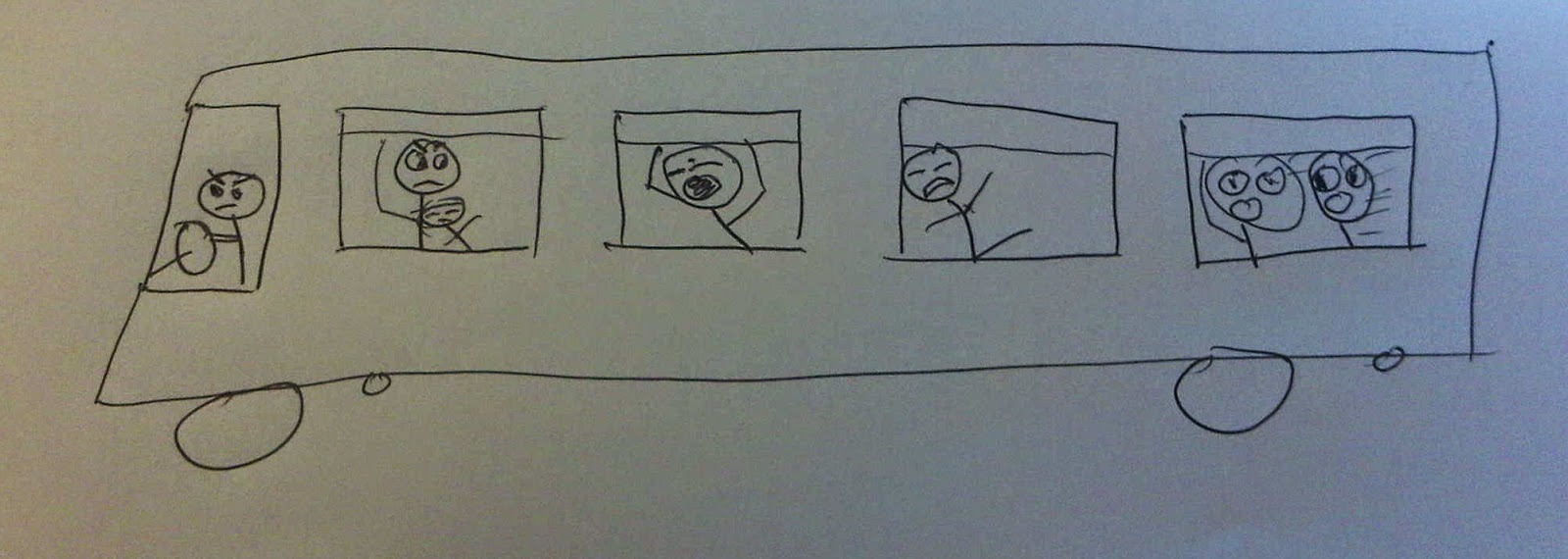Let’s say you have a
people living in a landlocked nation. Not only is there no sea, but this
country is surrounded by beautiful mountains. These people’s ancestors happened to arrive
and conquer this land on horseback.
And somehow these people
also have developed an incredible love of water. It doesn’t make much sense,
but that’s Hungary for you – a nation of water babies
In lieu of any coastline
Hungary has hundreds of thermal springs, which have spas and bathhouse built
over them. Mentioning the spa to a North American immediately conjures an image
of a fancy-pantsy retreat in the country where moneyed folks enjoy their mud
baths and massages. In Budapest, the baths are for everyone, from the working
man right on up to royalty.
Did I mention they are in
the city limits? Nowhere else in the world do you have not just one, but
several baths within a city. There’s something for everyone. For the mud bath
enthusiasts, you have the fancy pants Gellert Spa (I don’t know about mud bath
availability though). You’re already familiar with the old Turkish baths in
Rudas if you’ve seen the opening fight scene of the Schwarzenegger classic Red
Heat. It was filmed there.
 |
| Look past the man pecks, and you see Rudas. |
 |
| No man pecks here. |
My first encounter with
the baths was with a group of Hungarian friends at the Baroque outdoor wonder
that is Szechenyi in the morning of New Year’s Eve.
It’s a tradition. You arrive
in the morning, spend the day loosening up and use that relaxation to take a
long nap before the parties begin. The fog was so thick that morning that you felt
like you were all alone in an outdoor thermal pool filled with several hundred
people. You could hear the fountain splashing and gurgling in the middle of the
pool, but you didn’t know it was there until you walked right into its spray.
Kata and I try to get to Szechenyi every time she's in Budapest. In our opinion, it's the best bath in the city.
Hungary also has a large
shallow summer-getaway lake. About a two-hour drive from Budapest, this lake is
sort of like Canada’s Muskokas, if the Muskokas weren’t pockmarked with eyesore
mansions and the calm wasn’t interrupted by jetskiers going back and forth.
On Balaton, motor traffic
is limited to the ferries, allowing people to actually swim in the lake or take
sailboats out. And the mansions? The communists turned them into hostels for
vacationing state company workers (some of which are still used for that purpose).
The lake is shallow, no
deeper than three or four meters, but it’s large enough that there are plenty
of places to visit along its shore, each with its own character.
Last month for my birthday
Kata and I went to Badascony, a hill formed by volcanic fissures. This left basalt
columns on the hill and rich, volcanic soil below it for amazing wine
growing. We spent an afternoon hiking up the hill. Exiting the park we came out
onto a road lined with wine cellars and drank as we returned to our hotel to
suit up and go for a swim in the lake.
The summer before, friends
and I made it out to Siofok, which is Balaton’s beach resort town. It has a
sandy beach and a lot of muscled dudes and bikini-clad ladies ambling along,
trying to be seen.
Across the lake, Tihany is
different still. It’s a hilled peninsula jutting into the Lake, almost cutting
it in half. The hiking is ok, the view is incredible, and there are quiet,
private beaches to be enjoyed – if you can sneak onto one.
 |
| Feet up in Siofok. Photo by Torma. |
 |
| Hiking in Badacsony. |
 |
| Our forbidden beach. Photo by Kata. |
Somehow, this lake, the
land’s springs, and this water baby love culminated into a fierce water sports competitive
spirit. Hungary, per capita, has a dizzying amount of Olympians – many are
divers, swimmers, and, most popularly, water polo players.
There’s a lot of history
in water polo here, and I will not get into it here. For those unfamiliar with
the sport, it does not involve riding horses in the water. Think of it as rugby
in the water. It’s brutally violent, incredibly exhausting, but very
entertaining for the rest of us watching.
In Hungary, water polo players are treated like
hockey players in Canada. They are revered national heroes, endorsing all sorts of products and
marrying women who Canadians would recognize as puck bunnies. The similarities
are eerie, sometimes.
 |
A Hungarian telcom set up a water polo pool with big screens in
a Budapest public square for Euro Water Polo Tournament |
Needless to say, water
polo is a big deal in Hungary. I caught the water polo bug during the recent
European Championships, which were held here. I wasn’t at the point
where I was running down the street with a Hungarian flag as a cape, but I was getting
home to watch the games on TV. I was jubilant with every win for Hungary, and I
was crushed when they were trounced in the finals by Serbia. Admittedly, it
might not just be water polo I was enjoying; I could be turning into a Hungarian
nationalist too.
How a landlocked country
is filled with bath-going, water polo-loving people is still
beyond me. Hungary can seem like a nation of peculiarities, and this is just of
one of them – and it’s a fun one, if you ask me. So I’m just going with it.














